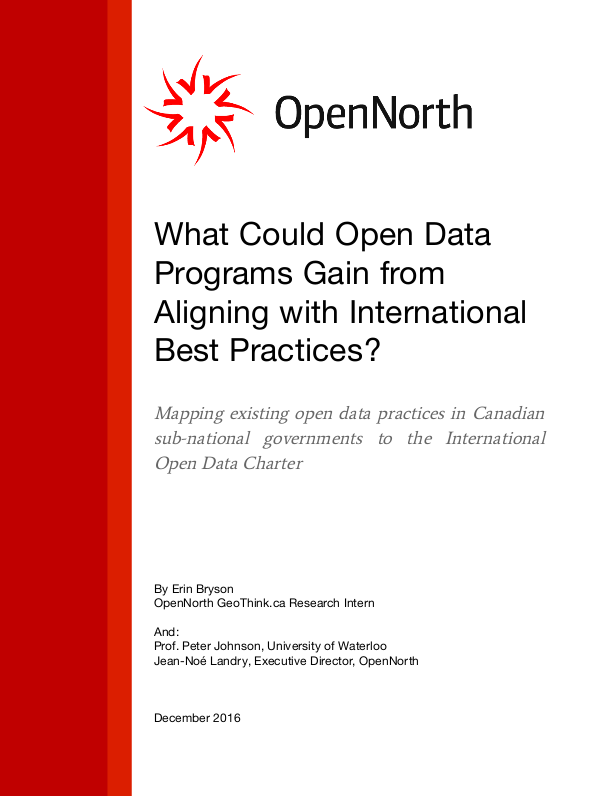
The international Open Data Charter (ODC) is a set of 6 principles that provide governments with a common foundation upon which to realise the full potential of open data. As Steward of the ODC, Open North interviewed ten cities and four provinces in Canada to discuss how the ODC could align with sub-national open data programs and policies. The report is a collaboration with Geothink. The City of Edmonton was Canada’s first city to subsequently adopt the ODC and Open North currently advises the Province of Ontario on the ODC’s implementation.
Funded by Canada’s Social Sciences and Humanities Research Council (SSHRC) Partnership Grant, Geothink, in January 2017.
Open Data Programs: Key Findings
While the tools and practices used to manage open data in Canadian provinces and municipalities vary, this study revealed several key findings on the potential role of the Open Data Charter in Canadian provinces and municipalities.
- There is an existing overall alignment between current open data policy tools in Canadian provinces and municipalities and the International Open Data Charter.
- Adopting the Open Data Charter presents opportunities to magnify existing outcomes of open data in Canadian provinces and municipalities. For example, adopting the ODC can facilitate better coordination among existing inter-jurisdictional partnerships.
- There is a need for support packages for municipalities that includes guidelines and best practices on a range of issues, including open data policies, data inventory methodologies, use cases, and evaluation matrixes.
- Many of the common barriers identified that inhibit the release, access, and innovative use of open data in Canadian provinces and municipalities could be minimized 20 through the adoption of the International Open Data Charter. For example, adopting the ODC can accelerate change management and reduce internal resistance to open data release.
- Canadian provinces and municipalities are well-positioned to adopt the International Open Data Charter. The adoption of the ODC by subnational and federal governments enhances interoperability and can bring a range benefits for Canadians, including greater inclusion, data literacy, job creation.